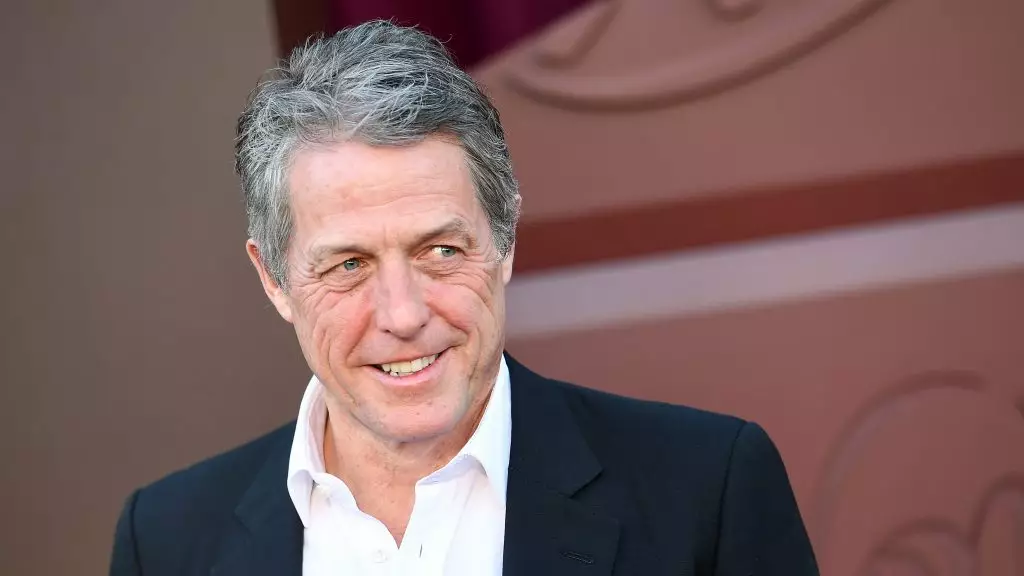Hugh Grant has always been a familiar face on the silver screen, but it was not until his collaboration with the Wachowskis in the ambitious adaptation of *Cloud Atlas* that he experienced a significant reinvention of his career. In a candid conversation with *Vanity Fair*, Grant reflected on his trajectory in the film industry, particularly after the disappointing reception of his 2009 romantic comedy, *Did You Hear About the Morgans?*. The film’s failure left him feeling somewhat isolated in the cinematic landscape, and it was during this period of uncertainty that the Wachowskis presented him with an unexpected opportunity.
In recounting his journey, Grant described having found himself “completely marooned” following his previous project. The *Cloud Atlas* role initially appeared small – a few minor characters – but he recognizes that those roles served as more than filler; they were a gateway to embracing the diverse nature of acting. He speculated that the decision to include him stemmed from external pressures from international distributors who desired recognizable names to attract audiences, a notion he believes contributed to revitalizing his career even if it came with socio-cultural critiques.
The film itself is an expansive tapestry, intricately weaving together six narratives that traverse centuries. While it invited significant discussion about representation (particularly regarding Grant, among other actors, embodying characters of East Asian descent), it also allowed him to explore the darker facets of human nature. He relished the opportunity to embody characters with a more menacing edge, noting, “I used to really enjoy doing characters… it’s less fun being a leading romantic hero.”
Grant’s shift from a romantic lead to often portraying antagonists illustrates an enriching development in his career. The actor boldly articulated that portraying villains can offer depth that many heroic roles do not possess. He emphasized the necessity of exploring a character’s vulnerabilities, stating, “unless there’s a sense of the quivering jelly—the damaged bit inside—it’s going to be boring.” This new perspective reflects the evolution he has undergone as an artist; it underscores a desire to deliver performances that resonate with the audience beyond surface-level charm, which often defined his earlier work.
This artistic maturation represents a broader trend in Hollywood, wherein audiences are increasingly drawn to complexity and authenticity over archetypal characters. Given this change, Grant’s capacity to adapt and pivot from romantic comedy to layered character portrayals also mirrors his personal growth throughout the years.
Beyond the roles he has embraced, Grant has also begun to exercise discernment regarding which projects he undertakes. In his interview, he admitted to declining roles that didn’t meet his standards, particularly those lacking creative independence from corporate oversight. His perceptiveness regarding the industry highlights a crucial critique of modern filmmaking processes, echoing concerns about artistic integrity being compromised by corporate influence.
The actor’s approach to selecting directors reflects a commitment to quality storytelling. With a desire to work with those who cultivate a sense of freedom in their filmmaking, Grant engages in direct dialogues with directors about their vision. “I quizzed the directors,” he noted, emphasizing the importance of understanding the creative landscape in which he would participate.
As Hugh Grant’s career continues to evolve, he stands as an example of an actor willing to break free from the confines of pigeonholing. With each new role, he embraces the opportunity to challenge himself and explore the complexities of humanity through performance. The transformation seen in *Cloud Atlas* is not merely a revival; it signifies a deeper exploration of his craft and an ongoing dialogue with the artistic community. Ultimately, Grant’s retrospective on his career serves as a reminder that reinvention often necessitates stepping outside of one’s comfort zone and confronting new artistic realms. In the ever-evolving landscape of cinema, his continued evolution remains a testament to his talent and resilience in an industry rife with challenges.


Leave a Reply